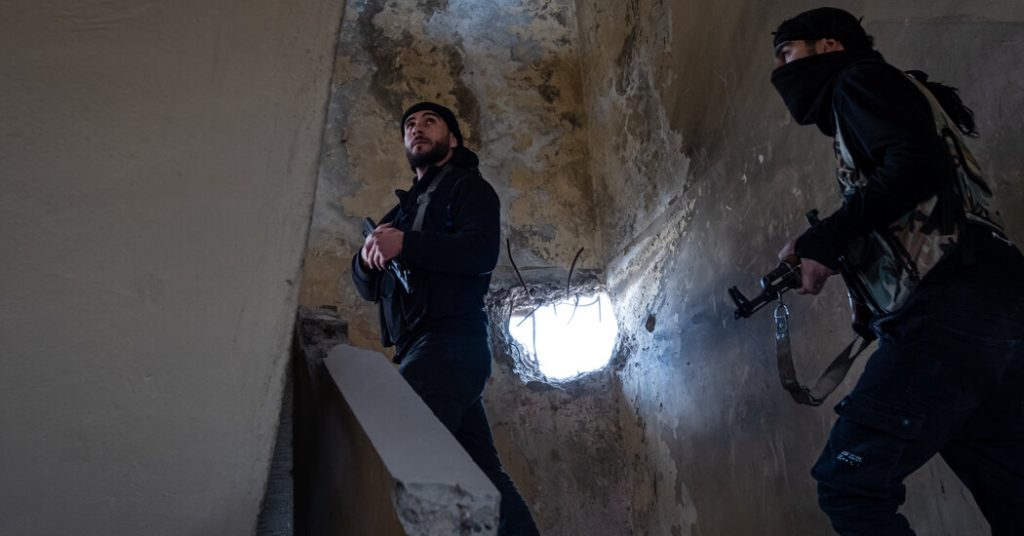The Druse, a religious minority scattered across the Middle East, are embarking on a diplomatic offensive to secure their future in a post-Assad Syria. Following the recent overthrow of President Bashar al-Assad by a rebel coalition led by the formerly designated terrorist group, Hayat Tahrir al-Sham (HTS), the Druse community, known for its historical role in Syrian independence and its presence in multiple countries, is actively engaging with international powers to safeguard its interests amidst the evolving political landscape. Sheikh Muwafaq Tarif, a Druse representative, spearheaded this diplomatic effort with a visit to Washington, where he met with US lawmakers, officials from past administrations, and diplomats to advocate for the protection of Syria’s 1.2 million Druse. Their concerns stem from HTS’s past ties to Al Qaeda and ISIS, despite the group’s current pronouncements of tolerance and commitment to a new constitution.
While the international community, particularly Western nations, expresses cautious optimism about engaging with HTS for the sake of rebuilding Syria, the Druse remain wary. Despite HTS leader Ahmad al-Shara’s efforts to distance himself from the group’s extremist past, including promising a new constitution, expressing moderate views, and appointing a Druse woman as governor of the Sweida district, the Druse leadership expresses skepticism. Sheikh Hikmat al-Hajari, the spiritual leader of the Druse in Syria, publicly voiced his reservations about al-Shara’s promises. Sheikh Tarif echoes these concerns, emphasizing the need for actions to match the rhetoric, given the fear prevalent among minorities regarding the new regime’s true intentions. He seeks concrete proof of HTS’s commitment to tolerance before supporting the lifting of sanctions and the influx of much-needed economic aid.
The Druse community’s apprehension is further fueled by observations suggesting that al-Shara’s moderate stance may be a tactical maneuver to secure international aid. Actions such as sweeping changes to school textbooks have cast doubt on HTS’s commitment to religious diversity, further reinforcing the Druse community’s need for assurances. Sheikh Tarif’s diplomatic mission emphasizes a conditional approach to supporting Syria’s reconstruction: economic assistance and the lifting of sanctions should be contingent upon demonstrable evidence of HTS’s adherence to its promises of tolerance and inclusivity. This cautious approach reflects the Druse community’s deep understanding of the complexities of Syrian politics and their desire to secure their future in a potentially volatile environment.
Underlying the Druse diplomatic push is a broader strategy to position their community as a crucial partner for Western nations seeking to influence the future of Syria and the wider region. Drawing upon their historical experience of navigating complex political landscapes across multiple Middle Eastern countries while maintaining their distinct religious identity, the Druse believe they can play a pivotal role in fostering stability and peace. Sheikh Tarif highlights the Druse’s significant historical contributions to Syria, particularly their leading role in the 1925 revolt against French rule, a pivotal moment considered Syria’s first nationalist uprising. This historical context underscores the Druse community’s deep roots in Syrian society and their vested interest in the country’s future.
The Druse community’s multifaceted approach also involves balancing their position within different nations. While Sheikh Tarif advocates for the rights and protections of the Druse in Syria, he simultaneously navigates the complexities of his leadership role within Israel’s Druse community. He acknowledges the challenges faced by the community in Israel, particularly in light of recent legislation perceived as discriminatory towards minorities. While critical of internal Israeli policies, he defends the Israeli military’s actions in Syria near its border, framing them as necessary for national security. This nuanced stance reflects the complex realities of the Druse community’s existence across multiple political landscapes and their commitment to balancing their various affiliations.
Ultimately, the Druse community envisions itself as a bridge between different nations and cultures, emphasizing their ability to coexist peacefully despite religious and political differences. Citing the Druse’s presence in Syria, Lebanon, Israel, and Jordan, Sheikh Tarif underscores their potential to serve as a model for interfaith understanding and cooperation. He points to the Druse community’s participation in the Israeli military, including their sacrifices during recent conflicts with Hamas and Hezbollah, as evidence of their commitment to peaceful coexistence. By leveraging their unique position and historical experience, the Druse are actively working to secure their future in a rapidly changing Middle East and contribute to a more stable and tolerant regional environment.


